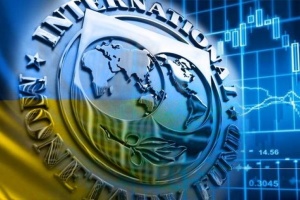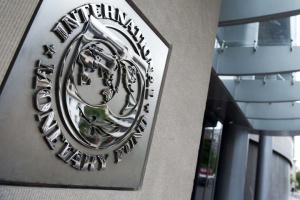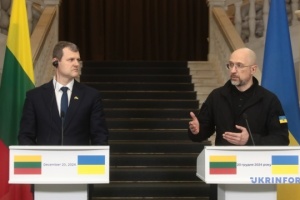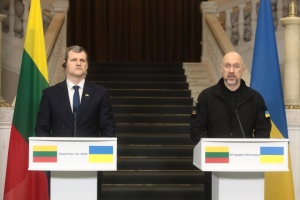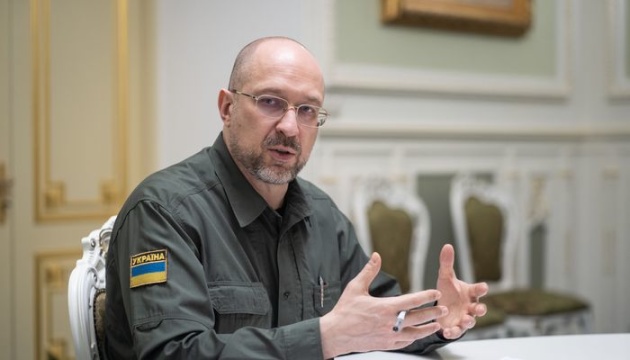
Shmyhal calls on UN to take decisive action to avoid global food crisis
He said this in an interview with The Wall Street Journal, Ukrinform reports.
"If we will not find a solution for this challenge, then the world will have problems and food crises in many countries," Shmyhal said.
Shmyhal said the food crisis was a deliberate objective for Moscow. "We absolutely clearly understand that they do it completely on purpose," he said.
According to Shmyhal, there appear to be few good options for solving the crisis in the near term. Most ports in European Union countries near Ukraine don't have the capacity to handle grain shipments of the size Ukraine has been handling, he said.
The Baltic states can handle much larger quantities but transferring Ukrainian grain there overland through Poland would mean cargoes have to be lifted by cranes to different trains because Ukraine's Soviet-era railways use a wider gauge. The complicated process would need to be repeated upon entry into Lithuania, another ex-Soviet state using the wide gauge.
According to Shmyhal, the UN offered to broker a deal to transfer Ukrainian grain to the Baltic states through Belarus, a neighbor whose authoritarian leader Alexander Lukashenko has remained a staunch Russian ally throughout the war. Kyiv declined the offer.
Other solutions are fraught with risk. An international rescue operation involving warships escorting Ukrainian commercial vessels out of Odessa could provoke a Russian attack and would be vulnerable to mines laid as a deterrent against a possible Russian assault on the port city.
At the same time, Shmyhal stressed that despite the continuing war and the difficulty of striking a deal with Russia, the crisis can be resolved.
"We are optimistic. Physically and technically we are absolutely capable," he said, but added, "we need international support."
According to him, that international support should extend beyond efforts to resolve the grain crisis. Ukraine needs much greater supplies of heavy weapons from the West, he said, including antiship and antitank rockets, U.S. multiple-launch rocket systems, and hundreds of howitzer artillery pieces to counter Russia’s creeping advance in Ukraine’s east.
The prime minister also suggested that recent attacks on Russia’s Belgorod region, across the border from Ukraine, were Russian provocations aimed at framing Ukraine and creating a pretext for an escalation and even a possible nuclear strike. He said Ukraine understood the risk and had no plans to target Russia with weapons it is provided by the West.
“We absolutely have no intention to attack Russian territory,” he said. “We have a dream to liberate our territory and stop this war.”
Due to the blockade of Ukrainian seaports, 7 million tonnes of wheat, 14 million tonnes of corn, 3 million tonnes of sunflower oil and 3 million tonnes of sunflower meal did not enter the world market. This has already led to a record rise in world market prices and will inevitably cause a global food crisis and rising inflation.
On February 24, Russia launched a new phase of its war against Ukraine - a full-scale invasion.

